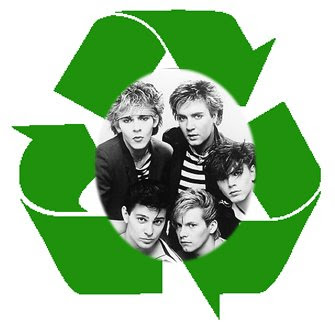 There are times when it's best to destroy the evidence and swear all witnesses to secrecy. And then there are times to just come clean. This, I have no doubt, falls into the former category. And yet here I go:
There are times when it's best to destroy the evidence and swear all witnesses to secrecy. And then there are times to just come clean. This, I have no doubt, falls into the former category. And yet here I go:The first thing I must come clean about is that back in August, when Mickens documented the key-related idiocy of a "certain (unnamed) brumpelstiltskin member", he was referring to me: Mike-Michael. The second thing I must divulge is that, last night, yours truly dropped a chain of keys—house, car, mail, work, and spare—into a fricking sewer drain.
How did said mishap come to pass? Well, it all started with a dinner (frozen Margarita pizza) and a movie (The Dark Knight) date I'd scored with a beautiful woman (Oh, who am I kidding? I've come this far, I may as well bare it all: the film was Made of Honor.)
Just before leaving for my date, I inexplicably performed three impulsive, uncharacteristic, and irrational actions: (1) I changed out of my belt-fastened work trousers and into loose-fitting sweat pants that fall down if I put anything in their pockets; (2) I inserted a recently obtained candy cane—which I typically neglect to eat until at least July—into my mouth; and (3) I decided to check my mail on the way out of my apartment.
Hence, as I exited my flat toward my car, I had a wad of credit card offers in my right hand; a half-foot peppermint in my mouth; and a heavy, key-laden ring dangling precariously between my left thumb and forefinger.
As for what happened next, I honestly cannot recall if what slipped was an envelope from my fingers or the mint from my lips, but one of said culprits prompted the reflexively fatal opening of my left hand that—along with gravity—sent my precious keys into the drain (pictured above) over which I just so happened to be walking.
 As luck would have it, the keys were soon recovered: the drain was not more than four feet deep, and using a broom stick and a metal hanger (pictured right) that the aforementioned beautiful woman mercifully drove over to me, I was able to "MacGruber" those bad boys back above ground within an hour.
As luck would have it, the keys were soon recovered: the drain was not more than four feet deep, and using a broom stick and a metal hanger (pictured right) that the aforementioned beautiful woman mercifully drove over to me, I was able to "MacGruber" those bad boys back above ground within an hour.As I reflect on the half-hour between the original blunder and when my Chivalrous Damsel rescued her Sir in Distress, I'm struck by the fact that I never panicked. Well, except for those 30 seconds when—like a ring that's a half size too small for one's finger—I literally could not dislodge my elbow from the sewer grate I'd moronically stuck my arm through.
That last point brings me to my conclusion: namely, the following list of last night's lessons learned, which I'd like to impart to you all:
- Never stick your entire arm through the narrow opening of a sewer grate, especially one situated in a frequently trafficked alleyway.
- Affix your spare key to a trusted friend or family member, not to the same chain as the original it's meant to replace.
- Patrick Dempsey is significantly, almost impossibly, dreamier on the silver screen than he is on TV.







 limitations of a 14-foot U-Haul; after nearly backing said U-Haul into the porch of his soon-to-be former residence, thus commencing a turbulent transport over the roiling potholes of cobblestone streets; and, finally, after nearly securing sweet shelter (for both himself and his belongings) from the chaotic storm of moving, our young hero naively closed the auto-deadbolting door to his new abode—thereby locking 10% of his belongings, four friends, and himself without; and 90% of his belongings; one friend’s purse, and his house
limitations of a 14-foot U-Haul; after nearly backing said U-Haul into the porch of his soon-to-be former residence, thus commencing a turbulent transport over the roiling potholes of cobblestone streets; and, finally, after nearly securing sweet shelter (for both himself and his belongings) from the chaotic storm of moving, our young hero naively closed the auto-deadbolting door to his new abode—thereby locking 10% of his belongings, four friends, and himself without; and 90% of his belongings; one friend’s purse, and his house 












